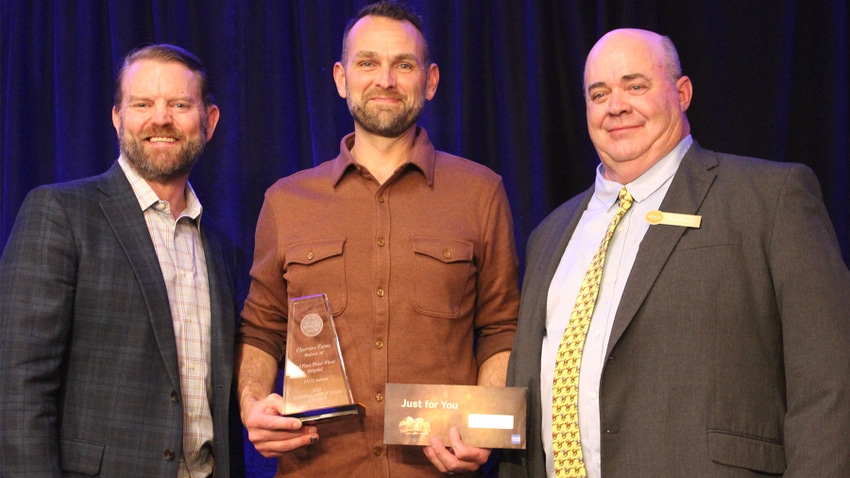March 5, 2024

Nick Suwyn took home double awards from the 2023 National Wheat Yield Awards reception during the 2024 Commodity Classic on Feb. 28 in Houston.
Suwyn, who farms in Allegan and Barry counties in Michigan, took second place in the winter wheat irrigated division award with a yield of 171.71 bushels per acre, with DF Seeds DF-131.
Suwyn’s entry also won him a national second-place quality award, receiving an additional cash award in the soft winter wheat category.
He attributes his high yields to being able to apply extra irrigation when needed in last spring’s dry months and applying nitrogen fertilizer as needed, which was determined by tissue testing of wheat plant leaves during the growing season. The awards are sponsored by the National Wheat Foundation.
Entries for the 2024 Winter Wheat contest may be made until May 15 by contacting NWF.
Symposium to look at insect-focused solutions
What role do insects play in an ever-changing world? Can we find insect-focused solutions for climate resilience, one health and STEM education within Michigan State entomology and beyond?
The Department of Entomology at Michigan State University is hosting an Excellence in Insect Science Symposium to explore those options. The two-day event, May 16-17 at the Kellogg Conference Center in East Lansing, seeks to bring together innovative scientists, industry, government, educators and others who center their work around insects, harnessing their collective expertise to address the symposium theme of “Leveraging Insect Science for Global Grand Challenges.” Sessions will focus on climate resilience, one health and STEM education.
MSU Entomology Chair Hannah Burrack says, “This event is focused on collaborative idea-generation rather than traditional scientific presentations, and I expect it to supercharge research leveraging insect-focused solutions.”
In addition to the symposium sessions, there will be a variety of extra insect-themed offerings. The MSU Bug House, in cooperation with the Ohio State University Bug Mobile, will provide hands-on encounters to acquaint participants with a variety of insects. The MSU Dairy Store will offer custom insect-themed ice cream flavors, available with meals during the symposium and through their on-campus location.
Joseph Yoon, an edible insect ambassador, world-renowned chef and thought leader in entomophagy (or eating insects) will offer cooking demonstrations and work with the MSU Kellogg Center chefs to feature insects in the symposium menu.
See the EIS website for more details.
Co-ops 101: How they work and steps of development
Michigan State University Extension’s upcoming free webinar, “Co-ops 101: How Cooperatives Work and the Basic Steps of Development,” will focus on what cooperatives are, how they operate and how they are developed. Participants will be presented with different examples of businesses that use the cooperative model.
The online event is at 5:30 p.m. March 13. To register for the no-cost training and to receive the Zoom link, click here. Alternately, an in-person presentation will be made in Traverse City at the MSU Extension office.
There will be an opportunity at the end of the presentation to join a separate, interactive educational event from MI Farm Co-op, which is an agricultural co-op of more than 20 farms that works together on joint aggregation, distribution and sales. To register for the in-person event, click here.
In addition to the seven cooperative principles and how they operate within co-op businesses, presenters will talk about how to assess whether a co-op is the right fit for a particular business, the steps needed to determine the feasibility of a cooperative business plan and the timeline to develop a cooperative.
A cooperative business structure, however, isn’t right for everyone. The presenters will also explore other business entities and legal options in Michigan beyond co-ops that still allow for cooperation. Finally, a question-and-answer session will be held to discuss ideas and questions.
You May Also Like




